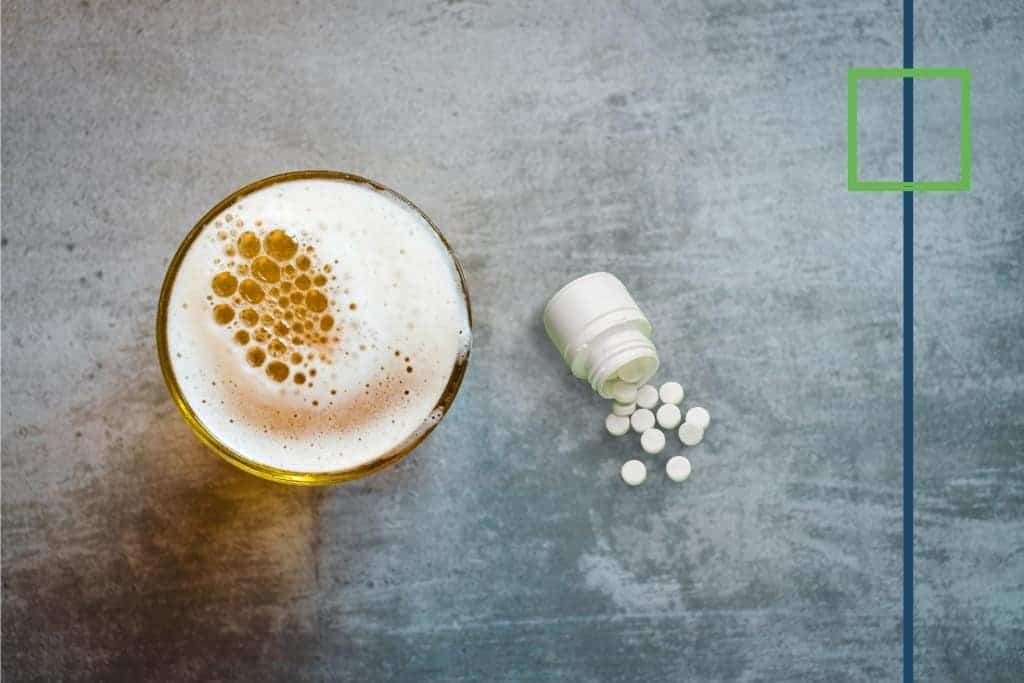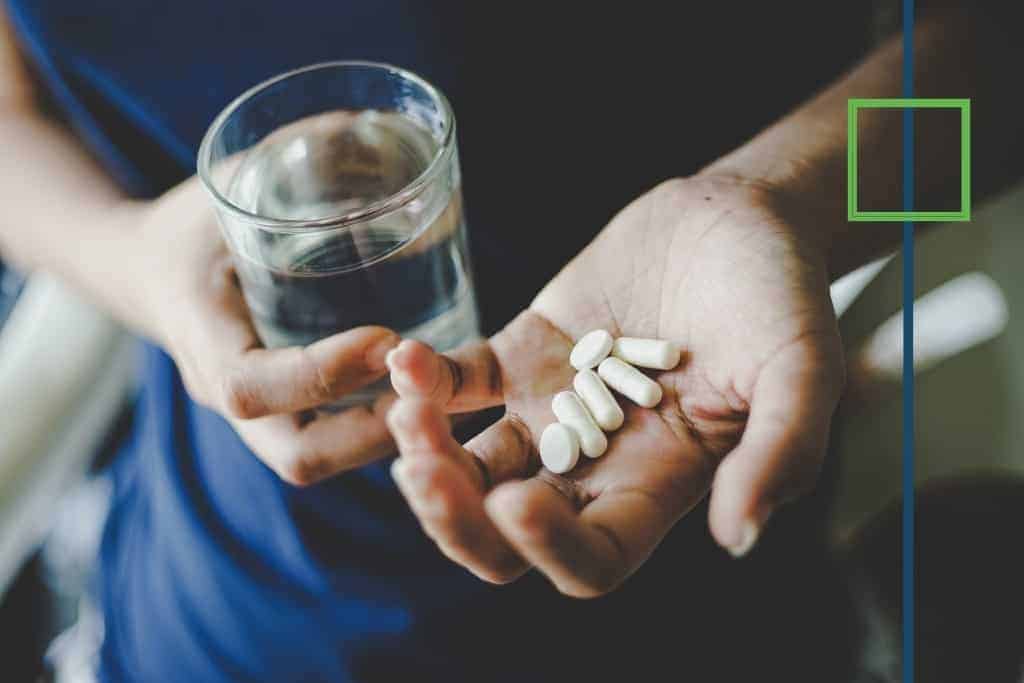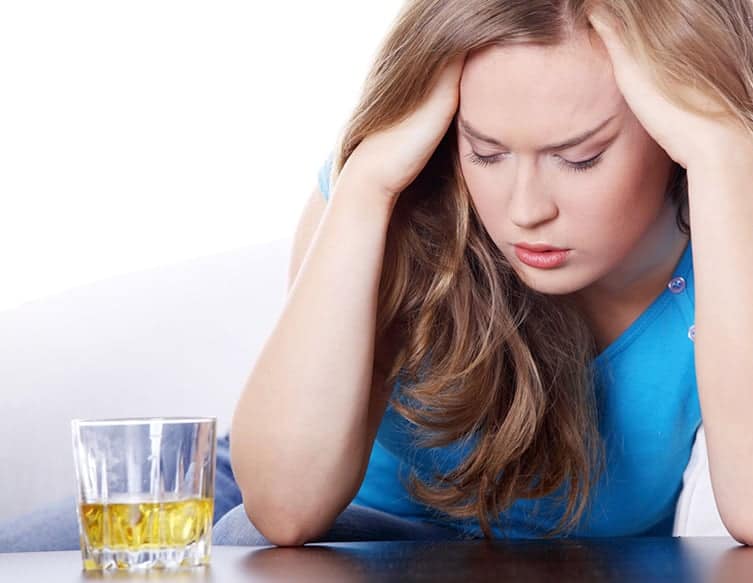What is Codeine?
Codeine is a member of the opioid family of drugs that are derived from the opium poppy and synthesized in a laboratory to create an analgesic drug that is commonly prescribed for the treatment of chronic pain, off-label use in cough, restless leg syndrome, and sometimes diarrhea [1]. Codeine is considered a narcotic, and it does carry a potential for causing addiction though it is not typically considered as dangerous as some other opiates such as Hydrocodone or Oxycodone. Mixing prescription drugs with alcohol impairs the medication’s desired impact, which often leads people to drink or ingest more substances to achieve a similar high. This increase can lead to an overdose or alcohol poisoning.
Codeine is also available in combination with acetaminophen (Capital and Codeine, Tylenol with Codeine), aspirin, carisoprodol, and promethazine and as an ingredient in many coughs and cold medications. Codeine (alone or in combination with other medications) comes as a tablet, a capsule, and a solution (liquid) to take by mouth. It is usually taken every 4 to 6 hours as needed [2].

Codeine is the most commonly taken opioid medication. It is at the center of the opioid addiction problem in the United States and thus is highly regulated. Its main indication is pain and cough. Chronic pain, defined by the International Association for the Study of Pain, is pain persisting beyond the standard tissue healing time, which is three months. The most prevalent causes of non-cancer chronic pain include back pain, fibromyalgia, osteoarthritis, and headache.

Get Your Life Back
Find Hope & Recovery. Get Safe Comfortable Detox, Addiction Rehab & Dual Diagnosis High-Quality Care.
Hotline(844) 597-1011What is Codeine For?
Cough
Codeine is useful in the treatment of various etiologies producing chronic cough. Also, 46% of patients with chronic cough do not have a distinct etiology despite a proper diagnostic evaluation. Codeine produces a decrease in cough frequency and severity in these patients. However, there is limited literature demonstrating the efficacy of codeine in chronic cough. The dose can vary from 15 mg to 120 mg a day. It is, however, indicated in the management of prolonged cough (in specific populations like lung cancer), usually as 30 mg every 4 to 6 hours as needed [3].
Restless Leg Syndrome
Codeine is effective in the treatment of restless leg syndrome when given at night time, especially for those whose symptoms are not relieved by other medications.
Persistent Diarrhea (Palliative)
Codeine and loperamide are equally effective, and the choice between them has its basis in assessing the physician evaluating the small but undoubted addictive potential of codeine versus the higher cost of loperamide and an individual difference in patient’s vulnerability to adverse effects.
Mixing Codeine and Alcohol
Recently, the mixing of alcohol with other drugs of abuse (such as opioids, cocaine, methamphetamine, nicotine, cannabis, and γ-hydroxybutyric acid) and medications has become an emerging trend, exacerbating the public health concerns. Mixing alcohol with other drugs may additively or synergistically augment the seriousness of the adverse effects such as withdrawal symptoms, cardiovascular disorders, liver damage, reproductive abnormalities, and behavioral abnormalities. Despite the severity of the situation, possible mechanisms underlying the interactions are not yet understood. This has been one of the key hindrances in developing effective treatments.
People who abuse drugs have historically tended to use more than one drug, a condition known as poly-drug or polysubstance abuse (defined as the concurrent or sequential abuse of more than one drug or type of drug, with dependence upon at least one). Over the past several years, there has been an increasing tendency to combine narcotics, alcohol, sedatives, and/or stimulants.

People abusing alcohol or suffering from alcoholism tend to use multiple illegal and addictive drugs either sequentially or simultaneously. Alcohol interacts with the co-abused drug and, additively or synergistically, modulate their effects via common pharmacokinetic (interference with the drug’s metabolism) and pharmacodynamic (modulation of the drug mechanisms) mechanisms.
There are several negative effects that may result from mixing codeine and alcohol. Persons who mix codeine and alcohol may experience effects such as sleepiness, dizziness, trouble breathing, problems with motor control, and memory difficulties. Both substances are central nervous system depressants that can seriously impair or alter your mental state, so the utmost care and caution should be taken when using codeine or alcohol. Because of their potential for negative interactions, they should never be taken together.
Get Help. Get Better. Get Your Life Back.
Searching for Accredited Drug and Alcohol Rehab Centers Near You?
Even if you have failed previously and relapsed, or are in the middle of a difficult crisis, we stand ready to support you. Our trusted behavioral health specialists will not give up on you. When you feel ready or just want someone to speak to about therapy alternatives to change your life call us. Even if we cannot assist you, we will lead you to wherever you can get support. There is no obligation. Call our hotline today.
(844) 597-1011Is It Safe To Mix Codeine And Alcohol?
Mixing codeine and alcohol can cause a variety of health risks. Both codeine and alcohol are drugs that a person can become dependent on. If a person is dependent on a drug, they experience withdrawal symptoms if use is stopped abruptly or dramatically decreased. Suddenly stopping codeine may result in withdrawal symptoms, possibly including anxiety, insomnia, restlessness, runny nose, sweating, pupil dilation, yawning, muscle aches, diarrhea, nausea, and vomiting.
In someone dependent on alcohol, withdrawal symptoms may begin less than 8 hours after his or her most recent drink. Symptoms may include anxiousness, being irritable, tiredness, depression, nightmares, headache, decreased appetite, vomiting, pupil dilation, tremors, and fast pulse. A severe and potentially life-threatening condition called delirium tremens may emerge.
For individuals going through withdrawal from alcohol, opioids, and/or sedative-hypnotics, it is recommended that they detox in a setting with medical care 24 hours a day in order to help individuals stay safe and comfortable.
Effects of Mixing Codeine and Alcohol
When used in conjunction with alcohol, however, these side effects can be exacerbated, and other more dangerous reactions may occur. This occurs because of a drug interaction between codeine and alcohol, as they are both central nervous system depressants.
Some effects of mixing codeine and alcohol include:
- Drowsiness
- Dizziness
- Lightheaded feelings
- Difficulty concentrating
- Fainting
- Impaired judgment and thinking
- Slowed breathing
- Low blood pressure
- Coma
- Death
Drinking After Taking Codeine
If you have taken a dose of codeine, it is best to avoid alcohol until the codeine is out of your body. Although the effects of codeine wear off in four to six hours, the drug itself can stay in your system for much longer. The half-life of codeine, or how long it takes half a dose to leave your system, is three hours. Because it generally takes five half-lives for a drug to leave your body, this means you can still have codeine in your system for up to 15 hours after a dose.
Taking Codeine After Alcohol
It is best to avoid codeine if you have been drinking alcohol. Although your liver can remove about one drink an hour from your body, this rate can vary, meaning that it can be hard to know when it is safe to take a dose of codeine.
First-class Facilities & Amenities
World-class High-Quality Addiction & Mental Health Rehabilitation Treatment
Rehab Centers TourRenowned Addiction Centers. Serene Private Facilities. Inpatient rehab programs vary.
Addiction Helpline(844) 597-1011Proven recovery success experience, backed by a Team w/ History of:
15+
Years of Unified Experience
100s
5-Star Reviews Across Our Centers
10K
Recovery Success Stories Across Our Network
- Low Patient to Therapist Ratio
- Onsite Medical Detox Center
- Comprehensive Dual-Diagnosis Treatment
- Complimentary Family & Alumni Programs
- Coaching, Recovery & Personal Development Events
Codeine Abuse
Cough syrup that contains codeine and promethazine may be combined with soda. This mixture may be referred to by street names such as purple drank, sizzurp, lean, or syrup. Starting in the later ‘90s, some popular music often referred to the drink.
Using codeine with other substances that depress the central nervous system, such as benzodiazepines or alcohol, can make effects like low blood pressure, respiratory depression, coma, and death more likely.
Signs and Symptoms of Codeine Abuse
If you think someone you are close to may be addicted to codeine, there are a few traits for which you can keep an eye out:
- Dizziness and staggering
- Itchiness and scratching (often of the nose)
- Constricted or pinpoint pupils
- Slow breathing
- Confused mental state
- Complaints of constipation
- Blue appearance to lips or fingernails
- Nausea and vomiting
- Delirium and hallucination
- Seizures

Alcohol Abuse Disorder
Alcohol use disorders (AUD) continue to be a concerning health issue worldwide. Harmful alcohol use leads to 2.5 million deaths annually worldwide. The DSM-5, which was released in May 2013, has combined criteria for alcohol dependence and abuse into a single term (AUD). Craving was added as diagnostic criteria and at least two target conditions are now required for the diagnosis of AUD.
Alcohol use disorder (which includes a level that’s sometimes called alcoholism) is a pattern of alcohol use that involves problems controlling your drinking, being preoccupied with alcohol, continuing to use alcohol even when it causes problems, having to drink more to get the same effect, or having withdrawal symptoms when you rapidly decrease or stop drinking.
Signs and Symptoms of Alcohol Abuse Disorder
Alcohol use disorder can be mild, moderate, or severe, based on the number of symptoms you experience. Signs and symptoms may include:
- Being unable to limit the amount of alcohol you drink
- Wanting to cut down on how much you drink or making unsuccessful attempts to do so
- Spending a lot of time drinking, getting alcohol, or recovering from alcohol use
- Feeling a strong craving or urge to drink alcohol
- Failing to fulfill major obligations at work, school, or home due to repeated alcohol use
- Continuing to drink alcohol even though you know it’s causing physical, social, or interpersonal problems
- Giving up or reducing social and work activities and hobbies
- Using alcohol in situations where it’s not safe, such as when driving or swimming
- Developing a tolerance to alcohol so you need more to feel its effect or you have a reduced effect from the same amount
- Experiencing withdrawal symptoms — such as nausea, sweating, and shaking — when you don’t drink, or drinking to avoid these symptoms
World-class, Accredited, 5-Star Reviewed, Effective Addiction & Mental Health Programs. Complete Behavioral Health Inpatient Rehab, Detox plus Co-occuring Disorders Therapy.
CALL(844) 597-1011End the Addiction Pain. End the Emotional Rollercoaster. Get Your Life Back. Start Drug, Alcohol & Dual Diagnosis Mental Health Treatment Now. Get Free No-obligation Guidance by Substance Abuse Specialists Who Understand Addiction & Mental Health Recovery & Know How to Help.
Dual Diagnosis Treatment for Polysubstance Abuse
Alcohol is the most addictive substance in America, as more than 17 million people in the United States are considered to suffer from addiction to alcohol. The Substance Abuse and Mental Health Service Administration (SAMHSA), publishes that over 1.5 million American adults were considered to be currently abusing a prescription drug.
Mixing codeine and alcohol can lead to addiction and dangerous side effects, including a greater risk of overdose. People with a history of problem drinking and alcohol dependence will need to inform their doctor about these problems. In addition, it’s crucial that these individuals get help from a qualified addiction rehabilitation center.
To determine the most effective ways to treat alcohol addiction, it’s crucial to first get an accurate assessment of all the symptoms. When the symptoms have been evaluated by a mental health professional, it may be determined that another form of mental condition is present and needs a particular type of treatment. Very often, some combination of psychotherapy, medication, and/or lifestyle changes are effective for coping with functional.
Medically-Assisted Detox
Medical detox is often considered the first stage of treatment. It will help you navigate the complicated process of alcohol withdrawal, but it doesn’t address patterns of thought and behavior that contribute to drug use. Various treatment approaches and settings can help provide the ongoing support necessary to maintain long-term sobriety after you complete detox.
Cravings are very common during detox and can be challenging to overcome. This often leads to relapse. Constant medical care provided during inpatient drug and alcohol rehab helps prevent relapse. Clinicians can provide necessary medication and medical expertise to lessen cravings and the effects of withdrawals.
Psychotherapy
Several different modalities of psychotherapy have been used in the treatment of mental health disorders along with addiction, including:
- Cognitive Behavioral Therapy (CBT) – is an effective treatment that involves making changes in both the patterns of negative thoughts and the behavioral routines which are affecting the daily life of the depressed person for various forms of depression.
- Dialectical Behavioral Therapy – is a comprehensive mental health and substance abuse treatment program whose ultimate goal is to aid patients in their efforts to build a life worth living. The main goal of DBT is to help a person develop what is referred to as a “clear mind.”
- Person-Centered Therapy – is a strategy that allows and encourages clients to understand and resolve their concerns in a safe, supportive environment.
- Solution Focused Therapy – is an approach interested in solutions that can be quickly implemented with a simple first step leading to further positive consequences.
Dual Diagnosis Treatment
Drug abuse and mental health disorders often co-occur. In many cases, traumatic experiences can result in a mental health disorder and substance abuse. Dual diagnosis rehabilitation treats both of these issues together. The best approach for the treatment of dual diagnosis is an integrated system. In this strategy, both the substance abuse problem and the mental disorder are treated simultaneously. Regardless of which diagnosis (mental health or substance abuse problem) came first, long-term recovery will depend largely on the treatment for both disorders done by the same team or provider.
Medication-Assisted Treatments
Medication-Assisted Treatments (MAT) for substance use disorders and mental health disorders are commonly used in conjunction with one another. This includes the use of medications and other medical procedures. During your rehab, the staff from your treatment facility will help you identify what caused your addiction and teach you skills that will help you change your behavior patterns and challenge the negative thoughts that led to your addiction. Sometimes, the pressures and problems in your life lead you to rely on substances to help you forget about them momentarily.
Now that you’ve answered the question “what happens if you mix codeine and alcohol” it is important to follow the special precaution to avoid overdose. Alcohol overdose or commonly known as alcohol poisoning is a medical emergency. It can lead to complications such as choking, brain damage, and even death. Prompt alcohol poisoning treatments can help prevent these complications from occurring.
If an alcoholic decides to stop drinking, they may alcohol experience withdrawal effects such as anxiety, restlessness, insomnia, and tremors. The development of tolerance and withdrawal are indications of addiction. If you or a loved one are struggling with long-term codeine and alcohol abuse and a co-occurring mental health condition such as depression, contact one of our helpful treatment specialists today. We Level Up can provide information on dual diagnosis and detox programs that may fit your specific needs.

Experience Transformative Recovery at We Level Up Treatment Centers.
See our authentic success stories. Get inspired. Get the help you deserve.
Start a New Life
Begin with a free call to an addiction & behavioral health treatment advisor. Learn more about our dual-diagnosis programs. The We Level Up Treatment Center Network delivers recovery programs that vary by each treatment facility. Call to learn more.
- Personalized Care
- Caring Accountable Staff
- World-class Amenities
- Licensed & Accredited
- Renowned w/ 100s 5-Star Reviews
We’ll Call You
Sources:
[1] NCBI – https://www.ncbi.nlm.nih.gov/books/NBK526029/
[2] NIH – https://medlineplus.gov/druginfo/meds/a682065.html
[3] NCBI – https://www.ncbi.nlm.nih.gov/pmc/articles/PMC6466217/
[4] NCBI – https://www.ncbi.nlm.nih.gov/pmc/articles/PMC3931699/
[5] Mixing Prescription Drugs with Alcohol – We Level Up NJ


